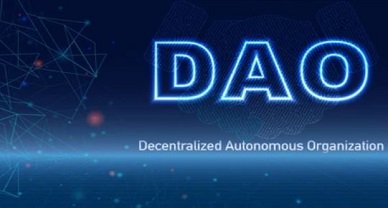Smart Contracts and its Potential Growth in India
Introduction
Whenever we discuss any lawful work or papers, the initial thing which comes into our brain is “a ton of paper work”. A smart contract could be a unique advantage here as it can reduce or say can assist us with disposing of paper work totally.
A smart contract is an agreement that gets executed naturally. This programmed execution is made conceivable through computer code which interprets the particulars of the agreement into an executable program. To perform such execution it is expected to have command over the important physical or computerized articles and this program helps in gaining that control.
A smart contract is utilized to automatically execute any arrangement when certain conditions are met. This helps user in getting the result quickly without the contribution of any third party or any mediators.
Smart contract work on a straightforward format of “in when/then..” statememts that are composed into code on the blockchain. We should comprehend this with an easy example, A rents his condo to B. The two of them concurred that on the off chance that B neglects to pay the lease, A will be qualified for lock the entryway of the condo. Further, they consented to uphold this understanding through a smart contract that will naturally lock the entryway assuming B neglects to pay the lease.
Analysis
Smart Contracts and the principle behind them
As the smart contract is only an agreement that runs on a code, it doesn’t possess the ability to decide if the arrangement where the parties are entering makes any legal obligations or not. Neither one of the it has any means to check and confirm that the parties who choose to utilize a smart contract have legitimately given their agreement to do as such. There are chances that the parties might have not perceived the conditions of the agreement and how it functions. Smart contracts do just those things which it has been told to do. In any case, it doesn’t intend that on the off chance that a smart agreement has the ability to follow through with something, it is legitimate or right as well. Code isn’t regulation.
In the event that we take the above model in which A and B go into a smart contract and the details of the agreement are that on the off chance that B neglects to pay lease, the entryway of the loft will get locked till the instalment is made. For this situation, in the event that B neglects to pay the lease he will be quickly expelled from the condo. Indian laws with respect to this matter express that the proprietor should inform the the tenant before a specific time span which is referenced in the law prior to ousting the inhabitant. The example subsequently shows that there is a requirement for an overall set of laws for smart agreements to decide if they are legitimate or invalid, legitimate or unlawful.

Smart contracts are kept on blockchain, and the code describes the processes of the transactions and serves as the ultimate arbitrator of the conditions. As a result, these contracts have formed the foundation of the whole ecosystem of decentralised apps, and they represent a point of convergence in blockchain development. Because blockchain is decentralised, it eliminates the need for middlemen, third parties, or human interactions. This also assures a seamless and trouble-free virtual contract execution experience. As a result, there is no room for human mistake; nevertheless, once the agreement is fully codified, it cannot be updated or modified as needed.
Let us look at an example to better understand how smart contracts function. If you wish to sell your property or rent out your flat, you can simply implement a smart contract on an existing blockchain network. Property information may be recorded on the blockchain, and anybody who is a member of that network can view it but not modify it. You may locate a buyer for your home without the assistance of a third party in this manner.
Smart Contracts are legally accepted by a very few countries around the globe including:
- Japan
In Japan, there is no legal definition of “blockchain” or “smart contracts.” Nonetheless, the Japan Blockchain Association provides a functional definition of ‘blockchain’ in Japanese, although smart contracts have yet to be defined. The definitions are also lacking from the main text, legal overview, and investigation of the Virtual Money Act. The reason for this is because there has yet to be consensus in Japan on a legal definition of a “smart contract.”
- USA
Not at all like Japan, the USA aces a pleasant EXAMPLE of both application and definition. In the USA, smart agreements are not regulated by any government regulation but rather there are new regulations on a state level. Tennessee was one of the states to embrace the lawful idea of smart contracts. State regulation recognizes savvy contracts as an occasion driven PC program, that executes on an electronic, disseminated, decentralized, shared, and imitated record that is utilized to robotize exchanges.
Implementation of Smart Contracts India
The essential statue to control the contracts in India is the Indian contract Act, 1872. Section 10 of the act expresses that “all arrangements are contracts on the off chance that they hold the free consent of parties able to contract, for a legally acknowledged thought and with a object.” In less difficult terms it implies that a consent to be enforceable by regulation priority an offer, acceptance and consideration. In smart contracts, there is offer, acceptance and consideration in form of crypto currency. Subsequently, the fundamental prerequisites of section 10 are satisfied which implies that the smart contracts are enforceable under the Indian law. In any case, cryptocurrency isn’t perceived a legal tender and there is no such guideline which can manage it. Here an inquiry raises, whether cryptocurrency can be viewed as a substantial thought under the Indian law.
In a 2020 judgment of the High Court, the Hon’ble Court lifted the boycott forced by Hold Bank of India on cryptographic money which rejected the banks and monetary establishments from offering types of assistance to people or organizations who were taken part in digital currency dealings.
Now, the question is weather digital signatures are enforceable or not and can be admitted in the court or not?
Section 5 and Section 10 of the Information Technology Act, 2000 (“IT Act”) defines that a computerized signature is lawfully OK and an agreement of electronic means to be genuine and enforceable. Section 65B of the Indian evidence Act, 1872 (“Evidence Act”) expresses that the agreements marked carefully will be conceded as a proof in the courts. Be that as it may, as per the Evidence Act, an electronic contract is viewed as legitimate just when assuming that it is confirmed via a computerized signature which ought to be as per regulation and these marks are enforceable and perceived under the IT Act and as per the principles of the Central Government. In the event of Smart Contracts, the agreement might be recognizable to the contracting parties, nonetheless, these don’t utilize marks in computerized designs that the Indian regulation requires. In this manner, the smart contracts may not partake in the advantages of an agreement under the Indian La
Future Of Smart Contracts in India
Smart contracts are enforceable in India, in any case, in the event that caution isn’t followed as for the party that is being contracted then the outcomes of a failed exchanges will be conveyed all by own as the law has no definite framework set up for the guideline of the smart contracts. A smart contract probably won’t be enforceable under the Indian Law on the off chance that the consideration in the agreement isn’t shared. As the Indian law perceives the mutual idea, absence of a similar will makes the agreement enforceable. This present circumstance can happen if there should be an occurrence of one-sided agreements. Although a smart contract without thought can in any case be enforceable through code. In any case, in the event that such agreement is made them it will not be held as breach in the of mind of courts of India in light of the fact that for the courts there is no contract in any case as there was no mutual consideration which is a critical prerequisite of an agreement
Conclusion
After analysing the above information about smart contracts, it is possible to infer that smart contracts offer several advantages as well as obvious downsides. Smart contracts are enforceable under Indian law, but no protection is provided since there is no legislation that governs this sort of contract. There are various more challenges with smart contracts, such as regulatory issues, jurisdictional issues, and the danger of fraud, among others. As a result, the Indian law requires revisions or new legislation to regulate smart contracts in India”.
Author: Sagar Chaturvedi, in case of any queries please contact/write back to us at support@ipandlegalfilings.com or IP & Legal Filing


